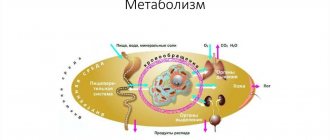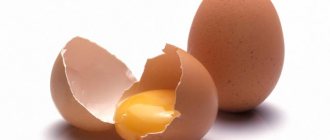Many women today are interested in how to maintain weight after losing weight. After completing the diet, the lost kilograms return too quickly, and additional ones often come with them. Such experiments are not only unpleasant for the woman herself, but also dangerous to her health. They can cause the development of cardiovascular diseases, diseases of the digestive system, and decreased immunity. Due to sharp fluctuations in weight, the condition of the skin worsens, stretch marks appear, and cellulite appears more clearly in problem areas.
Why is it easy to gain weight after losing weight?
Strict diets are designed for a short period of time (3-10 days), during which extra pounds are quickly lost and at the same time an imbalance of the hormonal system develops. That is why, after the end of strict food restrictions, a constant feeling of hunger and uncontrollable appetite appear. These conditions are accompanied by weakness, nervousness, and poor sleep. We eat one piece of candy, and our body, under stress, immediately stores it in reserve. And this happens with subsequent meals. But how to eat so as not to gain back the lost kilograms. It is with this question that most patients come to our nutritionist at the Gorny sanatorium.
Keep counting calories and then eat intuitively
You can count calories using a kitchen scale, but you can do without them, I wrote about this in the article:
How to learn to count calories correctly.
Although counting calories is the most accurate method of estimating your calorie intake, you don't have to do it all the time. If you have been counting calories for 2-3 months and can quite accurately determine the calorie content of dishes by eye, then you can abandon strict calculation.
Try staying on intuitive eating for a while, tracking your weight, body fat percentage and taking control photos. You can always make adjustments to your diet. And in the most difficult case, return to counting calories.
Common mistakes after losing weight
- A sharp increase in the energy value of the diet at the end of the diet. Emotionally from achieving the desired goal, we eat 100 grams of cake, and get plus 200 grams. And only then do we think about how to continue to eat after fasting so as not to gain weight so quickly.
- Uncontrolled consumption of junk food (fast food, canned food, sweets, confectionery).
- Lack or decrease in physical activity after fasting. If you avoid making such mistakes from the first day after the diet, then solving the problem of how not to gain weight again will be doable.
We carry out regular measurements
To track changes after a diet and make adjustments to your diet and lifestyle, it would be good to regularly:
- Weigh;
- Measure your fat percentage;
- Take pictures.
Both during and after the diet, weigh yourself daily in the morning and on an empty stomach after using the toilet. Track dynamics. It is important to understand that weight fluctuates greatly throughout the day, so it is better to look at your weight changes over the course of a week and understand where it is going.
Once every 2-4 weeks, measure the percentage of subcutaneous fat using one of the methods suggested in this article:
10 methods to measure your body fat percentage.
It is also better to take measurements in the morning on an empty stomach, observing the conditions of the previous measurement, for example, the location of the skin fold when measuring with a caliper or the place where body circumference was measured with a measuring tape.
Take control photos every 1-2 weeks to understand how your body is changing. A few rules:
- Take photos at the same time under the same conditions.
- The body proportions and light in the photo should be the same. To make the pictures more similar to each other, hold a magazine or phone in your hand and achieve the same proportions of these objects.
- Take pictures in the same underwear.
Photography example
How to lose weight correctly so as not to gain weight again
Let's look at useful recommendations on how to lose extra pounds and not gain weight again after a diet.
- A gradual reduction in the energy value of the diet in calories every day until the weight begins to drop by 0.5-1 kg per week.
- A diet as a way of life that involves low-calorie nutrition without creating stressful conditions for the body on an ongoing basis.
- Drink clean drinking water daily, excluding or reducing intake of other drinks.
- Movement is life. Stable physical activity is useful to maintain a good metabolism. In this case, through trial and error, the best solution would be to find a sport that will bring both benefit and pleasure.
Such an integrated approach will help not only get rid of extra pounds, but also not take them on again. The specialists of the Gorny sanatorium strictly follow the above recommendations when drawing up an individual weight loss plan. After the holiday, guests receive recommendations on proper nutrition that are specially designed for each person, so that they can continue the same lifestyle at home and not gain back the lost weight.
Physical activity
Physical activity helps maintain normal weight, speeds up digestion, burns fat reserves and, of course, has a beneficial effect on all human systems and organs. To maintain weight, 150 minutes per week of moderate physical activity or 75 minutes per week of vigorous aerobic activity is ideal. It is better to distribute physical education classes evenly over all seven days. There is no need to exhaust your body for several hours once a week. If you want to not only maintain, but also lose weight, one-hour sessions 2-3 times a week will be enough. At the same time, try to maintain a balance of cardio loads and strength practices.
Principles of proper nutrition after a strict diet
When we hear the phrase “proper nutrition,” the first association that comes to mind is bland and tasteless food. But is this really true? You can answer this question after tasting the sanatorium menu, developed by nutritionists taking into account taste and the required energy value.
When creating an individual diet, both at the beginning of a strict diet and at its end, the following principles are observed:
- Proper nutrition is, first of all, a balance of proteins, fats and carbohydrates. Therefore, eating all elements is mandatory, but in different quantities. When you come out of fasting, you should increase proteins, fats and carbohydrates in equal proportions.
- In order not to create stress for the body, we gradually increase the calorie content of food. This way you will not gain weight again and maintain a good mood.
- When choosing products, you should give preference to healthier ones. When choosing pasta, choose pasta made from durum wheat; instead of instant porridge, choose freshly prepared oatmeal.
- Snacks are an essential element of a healthy diet. They allow you to eat fractionally, which eliminates excessive stress on the digestive organs and speeds up metabolism.
- When increasing carbohydrates in your diet, give preference to fruits and vegetables. The fiber they contain helps remove toxins and normalize intestinal function.
- A strict drinking regime is an equally important principle when maintaining proper nutrition. Drinking healing mineral waters on the territory of Goryachy Klyuch during your stay at the Gorny sanatorium will speed up your metabolism and replenish the body with the necessary electrolytes.
- Always give preference to cooked food instead of processed foods and fast foods. The latter contain a large number of harmful ingredients that overload the digestive system. If the body cannot cope with the task of digesting food to the necessary components, it stores it in reserve in the form of fat deposits.
What diet is right for you?
The key to successful weight loss is adequate diet and exercise. You need to understand that a diet is not a one-time event, it is a way of life, a certain regimen that suits you and helps you maintain normal weight. Accordingly, the concept of “diet” should become synonymous with proper and healthy nutrition.
The concept of “diet” should become synonymous not only with proper and healthy nutrition, but also with a lifestyle (diet in Greek means way of life).
You need to choose your diet thoughtfully, taking into account the physiological needs of the body and your ability to maintain this diet for a long time. The following questions will help you with this:
- Does the proposed diet include a variety of foods: fruits, vegetables, grains, low-fat dairy products, lean sources of protein and nuts?
- Does your diet contain foods that you like, enjoy eating, and are willing to do so throughout your life?
- Can you easily find the products you need at your local grocery store?
- Will you be able to eat all foods during the diet (even if some of them are in limited quantities)?
- Does your diet fit your lifestyle and budget?
- Does your diet contain enough nutrients and calories to help you lose weight safely and effectively and maintain your weight?
- Is regular physical activity part of the plan?
If the answer to any of these questions is “no”, then this type of nutrition is not suitable for you, you need to look for something else.
What else is important for maintaining normal weight?
In addition to proper nutrition and a selected diet, constant physical activity will help you avoid gaining back those extra pounds. The picturesque mountainous terrain of the Krasnodar Territory, on the territory of which the Gorny sanatorium is located, predisposes to daily exercise, be it Nordic walking, health path (therapeutic walking in the mountains) or morning jogging. If you have not previously exercised, the instructor will individually select a long-term exercise program in order to lose weight on vacation and not gain weight at home. For independent exercise, there is a multifunctional fitness room and swimming pool on the territory of the sanatorium.
“The right choice of a sanatorium is a significant step towards maintaining and increasing health. “Gorny” is a resort complex that combines the experience and knowledge of Russian and Soviet balneology. The presence of modern medical equipment and innovative installations, the professionalism of the staff and love for their work will serve as the key to extending longevity,” - head doctor of the sanatorium Alexander Olegovich Karaulov.
Diet and the tendency to be overweight: a two-way relationship
For a very long time, there was an opinion that only people prone to weight gain go on diets. In fact, weight gain can be accelerated by dieting cycles , and the diets themselves, as already mentioned, lead to weight gain.
The results of a twin study showed that the twin who lost weight by dieting had a higher BMI by age 25 than the twin who did not diet.
These results support the assumption that weight gain after dieting occurs regardless of genetic predisposition to obesity.
Reducing weight below the base level (set point) generates powerful forces that contribute to the return of weight to the original level. These forces depend on the percentage of weight loss, and the diet acts like a stretched rubber band: the more it is stretched, the more force is created when restoring the elastic band to its original state.
| This means that any short-term weight loss measures will likely cause weight gain in the future. |
Muscle tissue growth
Muscles are heavier than fat, so when losing weight and at the same time intense training in the gym, muscles take the place of fat, making the body more prominent and beautiful, but at the same time adding slightly more weight than the fat layer did.
If this does not reassure you, and the number on the scale is very worrying, just take a photo and compare the new photos with your old ones: you will see a significant difference in your appearance. And the advantage will clearly not be on the side of your image’s past.
Indeed, during intense training, each fiber of the muscle is strained by the load, slightly torn, but quickly restored due to the formation of additional - new - muscle tissue at the sites of tears, which each time turns out to be slightly larger than before.
This leads to an increase in muscle weight. But there is one nuance here: the increase in total body weight due to muscle growth cannot be too large: for women, for example, it is no more than 500 g per month.
Therefore, if the readings on your scales are growing much faster, look for another reason or even another, not forgetting to also allow for temporary muscle swelling and natural monthly weight fluctuations in women of reproductive age, which should not cause concern.
Edema
Sometimes the process of losing weight occurs, but it will not be noticeable due to swelling. Fluid retention in the body can occur not only due to hormonal changes, but also due to errors in nutrition, diseases, etc.
If you periodically feel that your arms, legs, or face are swelling, then be sure to consult a doctor, take all the necessary tests and undergo examinations.
But at the same time, it won’t hurt to analyze your lifestyle and, first of all, your nutrition system. How much salt do you consume per day?
Sodium is found not only in ready-made dishes and semi-finished products, but partly also in natural products: vegetables, eggs, meat, fish, milk. For example, 5 eggs or 3-4 glasses of milk, yogurt or kefir already contain 1 g of sodium. You probably don't count these grams when you add extra salt to your food.
And there are also pickles, which contain quite a lot of salt, the excess of which retains fluid in the body, as a result of which not only a feeling of weight gain occurs, but also the metabolism as a whole is disrupted.
Muscle swelling can also occur during the first stage of sports. Beginners do not know about this and are very scared when faced with this phenomenon. But there is no need to worry: after a couple of weeks of regular exercise, you will get used to the stress, return to normal, and such swelling will go away on its own.
Just don’t pay attention to this reaction of the body, and after exercise, be sure to do stretching exercises: perhaps this will reduce the adaptation time, and will definitely help the muscle tissue adapt to its new work and new forms.
Stress
Stress leads to obesity - it's true. There may even be a situation where you carefully monitor your diet, lead an active lifestyle, but still gain weight.
This happens because during times of stress, rapid hormonal changes occur.
- An increased level of the hormone cortisol is produced, which leads to the deposition of fat reserves. Therefore, a person is surprised to notice that he eats the same amount as usual, plays sports, but at the same time gains weight.
- Excess cortisol leads to increased appetite, and excess, but not spent, calories inevitably lead to extra pounds.
- The production of the happiness hormone serotonin, which can be obtained from foods rich in the amino acid tryptophan, decreases. Instinctively, someone who is losing weight tries to eat more food containing this amino acid. But along with tryptophan, the body also receives an excess of calories, especially since many foods that increase serotonin levels are themselves very high in calories.
If nervous tension or depression is the norm in your life, then you will not be able to lose weight unless you carefully study the effect of stress on weight and take serious measures to get rid of stress first and only then from excess weight.
What should I do?
| What to do to get lasting changes? |
In recent years, obesity has become an increasingly common problem. This occurs as a result of complex interactions between genetics and environmental changes. Food marketing ensures easy access to high-calorie foods all year round and physical activity levels are reduced.
Several other factors that contribute to the development of obesity are:
- short sleep duration;
- low calcium intake;
- microflora composition;
- endocrine disorders.
Scientists are increasingly saying that a healthy lifestyle and successful strategies for bringing BMI to normal are not associated solely with calorie-reducing diets and exhausting physical activity. Moreover, dieting, paradoxically, is also considered a factor in future weight gain , especially among those in the healthy body weight range.
| This is why at #sekta we recommend approaching the issue of weight loss intelligently and smoothly. With gradual weight loss, the set point will be adapted to new conditions. The body will not have to mobilize all systems that guarantee the return of the original weight. |
Emotional stability and comfort are also important, which are preserved in the event of a gradual change in habits and lifestyle.
Remember that the processes in our body are controlled by many mechanisms. They are very strong and have nothing to do with the concept of willpower. Don’t forget also about the importance of correctly formulating your goals and objectively evaluate all the initial data. A reminder of psychological safety will help you work correctly in this direction .
If you've made numerous attempts to lose weight through dieting, always ending up back to square one or gaining even more weight, then it's possible that you've simply been caught up in the natural course of things. Long-term change always requires consistency and a deliberate approach.
Author: Elena Dedyaeva, Master of Engineering in Engineering and Technology. Elena Degtyar, PhD, coach, narrative practitioner
References: 1. MR Lowe. Dieting: proxy or cause of future weight gain? / Obesity reviews (2015) 16 (Suppl. 1), 19–24 2. A. G. Dulloo, J. Jacquet, J.-P. Montani and Y. Schutz. How dieting makes the lean fatter: from a perspective of body composition autoregulation through adipostats and proteinstats awaiting discovery / Obesity reviews (2015) 16 (Suppl. 1), 25–35 3. KD Brownell, MRC Greenwood, E. Stellar, E.E. Shrager . The effects of repeated cycles of weight loss and gain in rats / Physiology & Behavior (1986) 38 (4), 459-464 4. T. Mann, A. J. Tomiyama, E. Westling, A. M. Lew, B. Samuels, J. Chatman . Medicare's search for effective obesity treatments: diets are not the answer / Am Psychol. (2007) 62 (3), 220-233 5. S. Wolpert. Dieting Does Not Work/UCLA Researchers Report (2007)











